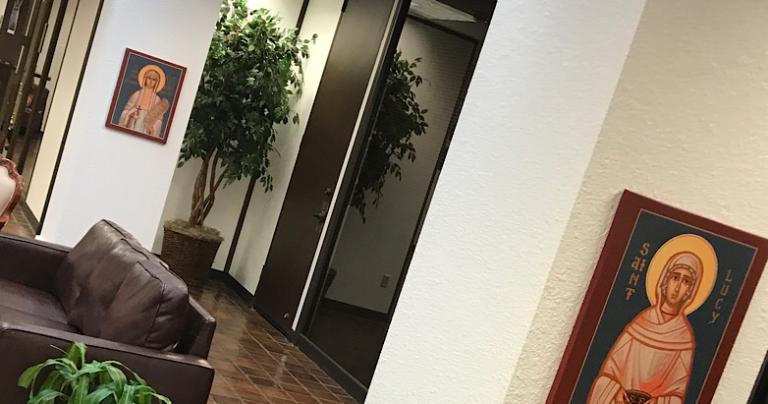
The Problem
The state university is underfunded when it comes to academics, but bloated with administrators and sports programs.
Large, private, well-endowed universities are fundamentally financially sound but suffer under government regulations, even greater administrative bloat, and an over-reliance on part-time faculty.
Meanwhile, the vast number of liberal arts colleges in America are dying. Colleges cover up by laying off experienced professors, cutting programs, and hiring younger professors, but administrative bloat continues. Check the 990 on the President’s salary and see if he took a pay cut last year while continuing to use part-time people (adjuncts) working full-time hours to balance the budget. Cut-rate Liberty-style online education is hawked by televangelist “academics” as a cure-all, but the market is saturated. You can do online education well, but the days of its being a cash cow are over—just do not tell desperate college administrators.
Schools losing money need a plan to make money, but this horrifies administrators. Change would lay the ax first to the root of their own money tree.
It’s All in That Hideous Strength
C.S. Lewis foretold most of this in a book I read three times every year: That Hideous Strength.
He even predicted an obsession with technology, though the NICE made more sense than most online grift. If you are going to work in higher education, read That Hideous Strength, follow what you learn, and all will be well.
What have I learned? Here are five infallible truths:
1. An Insider Group will gain power and run things into the ground.
In the book, this is the Progressive Element. Every college has a group that wants to be on the cutting edge of whatever the Spirit of the Age is saying: scholarship be damned. If you are at a state school, they run everything. Do not confuse this group with liberalism. There is nothing liberal about the Progressive Element. They want power.
If you are at a Christian college, this group is most likely the Syncophantic Element that will kowtow to power regardless. A few schools are dominated by an insider group that could be called the Conservative Element. This element is no more conservative than the Progressive is liberal. There is no principle they will not sell out for power.
You’ll know you have this problem when you hear that “Professor So-and-so” lacks “the DNA” of the college. He or she has transgressed what the Insiders know to be true. They “don’t get it.”
2. College meetings will be full of spin and debates will be managed.
The people with the power (that is, control of the budget) will pretend to listen, but all discussion will be stage managed. Everyone knows that if they jump the boundaries, treats will vanish. As the Leader or the Leaders speak, one must applaud or ask questions that give the Leader(s) a chance to shine. If not, you will end up in an office next to the furnace. Given the pay, that matters.
3. Never trust the Bursar or the person writing the script for the Bursar.
Schools have been, and always will be, going bust. They are not-for-profit after all! As a result of this, anything can be justified by money. If the Insiders hate the necessary change, they can talk about the cost to reputation or money. If the Insiders love the change, then it will be necessary to pay for the change to survive.
Meanwhile, you will never hear of students.
In an age of declining enrollments, masked at Board Meetings, this will be used to oppose necessary change by Eeyore Insiders or press unnecessary innovation (see Online Programs) by Pollyanna Insiders.
Bottom line: don’t take meetings seriously. The real work is done elsewhere.
4. “Change” will be opposed if it empowers education, and “status quo” will be opposed if it protects education.
The key to Higher Education is protecting the job of mediocre administrators (think of Curry) from both the market and the academics. Such administrators generally cannot make it in either world and so do whatever it takes to protect place and position. If he is clever, the administrator will oppose needed change when talking to worried faculty while supporting more bloat in the administration under the excuse of “accreditation.”
5. Academics find money, power, and title an almost irresistible temptation.
Academics can be bought by celebrity. We lack it, so if we are not careful, we crave it.
After all, we worked so hard— why should X be rich and famous, when we are so obscure? When Big Cheese X comes and sprinkles some of his wealth or fame on us, we are tempted.
As for money, we need it. If the government drags a check through a University then administrators will come running. Donors lack police power, so the goal is to butter them up, take their money, and do as one pleases.
In the end, the college will double down on what is unimportant (“our vision”) and end up selling out on what matters.
How not to sell Bragdon Wood
If you want to be Christ’s professor, do the opposite:
1. Listen to everyone at the school. Look for true educators, not people who wish to be paid more and more to teach less and less.
2. Never have a meeting with pretending powers-that-be.
3. Make sure the Bursar teaches. We do it at The Saint Constantine School. You can as well.
4. It is all about education. Put the students first.
5. Aspire to teach. Celebrity, money, and titles are only good if they empower education.
The shadow of that hideous strength kills learning because learning requires humility. Let’s start a revolution of education run by educators for students.
Rachel Motte edited this essay.












